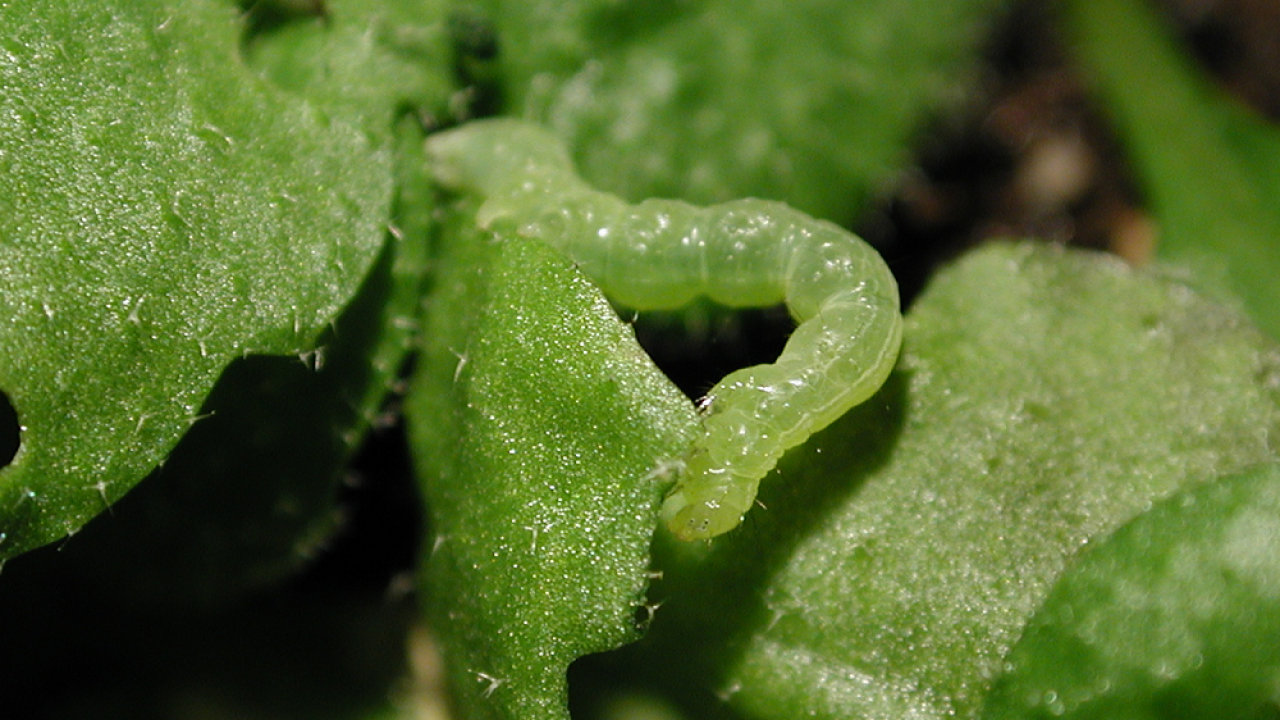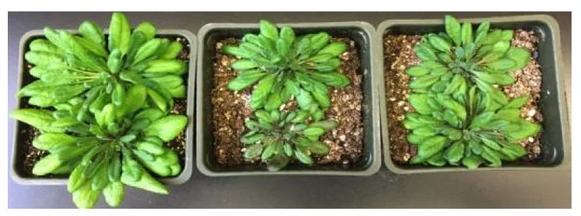
Arabidopsis Uses Defense Metabolites to Mediate Drought Tolerance
Brassica plants, such as broccoli, produce specialized metabolites that benefit humans by inducing anti-cancer defenses and providing flavor. These same compounds benefit the plant by attacking insects. Recent work however is showing that the plant also uses these flavor/anti-cancer compounds to defend against drought. The metabolite, glucoraphanin (4-methylsulfinylbutyl glucosinolate), is the focus of a new research study on drought tolerance in Arabidopsis, also in the Brassicaceae family.
In a new publication in Nature Communications by UC Davis Plant Sciences members Professor Daniel Kliebenstein, postdoc Ella Katz, Ph.D. student Michelle Tang, and postdoc Baohua Li, along with colleagues at other universities, studied how Auxin-sensitive Aux/IAA proteins mediate drought tolerance in Arabidopsis by regulating glucosinolate levels.
From this research they expect to develop new approaches to simultaneously breed or engineer flavor, nutrition, and improved stress resistance within plants.

The abstract is below, and the full article can be read here.
Abstract
A detailed understanding of abiotic stress tolerance in plants is essential to provide food security in the face of increasingly harsh climatic conditions. Glucosinolates (GLSs) are secondary metabolites found in the Brassicaceae that protect plants from herbivory and pathogen attack. Here we report that in Arabidopsis, aliphatic GLS levels are regulated by the auxin-sensitive Aux/IAA repressors IAA5, IAA6, and IAA19. These proteins act in a transcriptional cascade that maintains expression of GLS levels when plants are exposed to drought conditions. Loss of IAA5/6/19 results in reduced GLS levels and decreased drought tolerance. Further, we show that this phenotype is associated with a defect in stomatal regulation. Application of GLS to the iaa5,6,19 mutants restores stomatal regulation and normal drought tolerance. GLS action is dependent on the receptor kinase GHR1, suggesting that GLS may signal via reactive oxygen species. These results provide a novel connection between auxin signaling, GLS levels and drought response.
Related Research by Kliebenstein
- New Insight Into Unique Plant Chemical Could Inform Future Drug Development. Read here.
Contacts:
- Daniel Kliebenstein, Department of Plant Sciences, UC Davis, kliebenstein@ucdavis.edu
- Ann Filmer, Communications, Department of Plant Sciences, UC Davis, afilmer@ucdavis.edu
(Article by Ann Filmer, Department of Plant Sciences, UC Davis. September 6, 2019)
